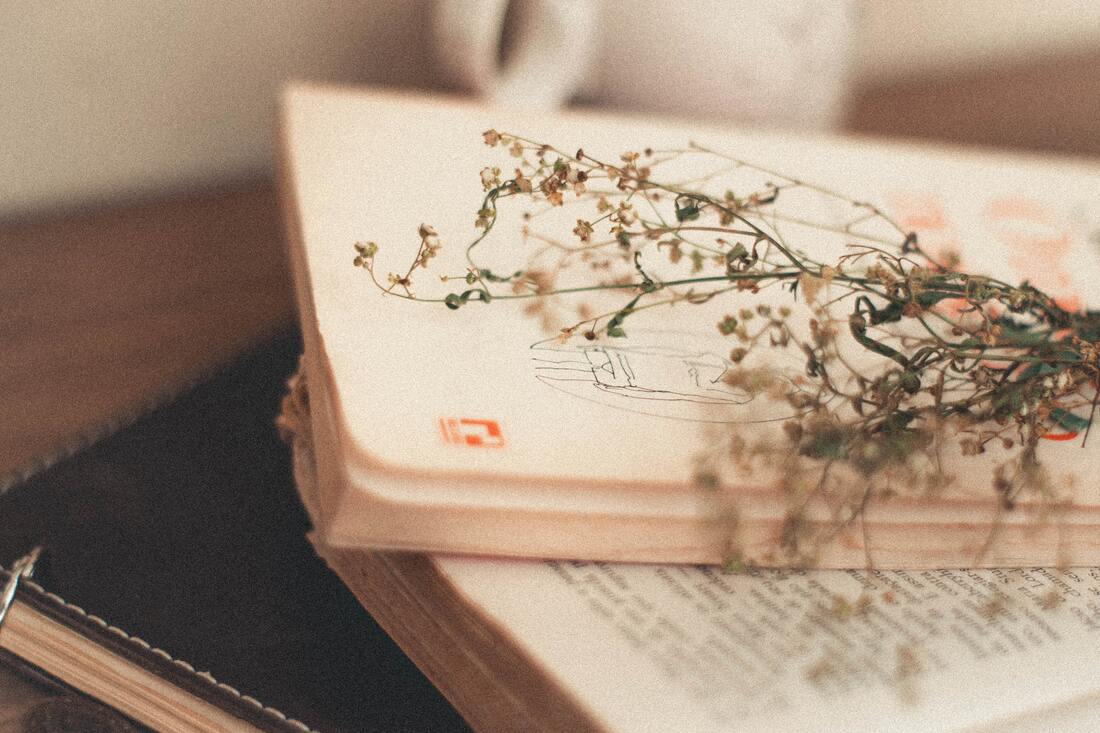Stripping Down Poetry for Today's Generation
My turn signal flickers as I round the familiar bend, simultaneously ready to be home but not ready to end my karaoke session in the car. The words to the Taylor Swift song blast from my mouth as my husband groans. “Sequin smile/black lipstick/Sensual politics,” echoes in the metal box when my husband speaks up.
“The lyrics make zero sense,” he complains as I put the car in park in front of our Cape Cod. “It’s poetry,” I proclaim, turning to him as I let the song play a little more. “That is not poetry,” he argues. Peeling ourselves out of the car, the words still resonating within me, I think about his argument. And as we lug the groceries into the house, I consider his words—and how wrong they are. (Expletive!) Poetry As a former high school English teacher of ten years, I can tell you that for far too long, we’ve scared the youth away from poetry. Stodgy, forced analysis and uppity takes on the masters establishes poetry as synonymous with expletives in many classrooms. The power of words, the feeling behind the words has been haphazardly traded for alliteration identification and iambic pentameter markings. Words from the masters feel archaic and stiff to the modern teenager in many cases. Certainly, we can try to enlighten our youth to the power of the words. We can help them uncover the beauty of love in Shakespearean sonnets along with the humor of his homely mistress. We can seek to inspire with the “Sail forth” words of Whitman and the Transcendentalist beliefs of marching to your own drum beat in Emerson’s poetry. We can analyze the melancholy in Poe’s “Annabel Lee” and distinguish Emily Dickinson’s punctuation and dark analysis from all the rest. Still, there is something lost when we try to determine poetry is only from the classical periods, from only a certain breed of writer or format. When we put our poetry in a box of this and not that, we alienate an entire generation of readers and poets, for that matter. What is Poetry, Actually? To come to a solution to this issue, we must ask ourselves what poetry is at the core. Is it formulaic writing? Is it old, curmudgeonly lines that we blow the dust off of? Is it tangled mystery with forced concepts? Or is it, at its root, an unfolding of the heart that speaks to many in nuanced ways? I know poetry scholars, poets, and avid readers may decide the last definition is undoubtedly simplified. It strips away the power of poetry and the skill. It cheapens it. But to me, if we can get past the academic appraisals and definitions, I think this generalized definition actually expands poetry in a way that opens up more possibility. By understanding that poetry at its core is about heart, we can make room for change. We can invite more poetry scholars into the fold by opening up our youth to the beauty of the art form. We can stop excluding so many by telling them what poetry isn’t. We can still hold the classics in high regard. I am not proposing that because they are of a different time or a higher caliber of vocabulary, they don’t have value. In actuality, I believe that every single piece of writing has something to teach us. I also believe to fully understand literature, one must push their boundaries of understanding in order to discover new possibilities. However, this reverence for the classic poetry forms and deep analysis does not mean other forms, other mediums, other styles of poetry should be snubbed. Poetry, Poetry, Everywhere … and Plenty to Drink Taylor Swift’s newer song “Sweet Nothings,” notes: On my way home/ I wrote a poem/ You say ‘What a mind.’/ This happens all the time. She’s not wrong. She did write a poem in her lyrics, one that all walks of life can uncover, interpret, and consider. Taylor’s words inspire and connect. They make us stir at the core and ask: How? Why? Most of all, they help us say, “That’s me.” Taylor Swift’s songs are poetry. So are Nelly’s. So are Def Leppard’s, and so are Queen’s. So are all the musicians out there. But it doesn’t stop there. The Instagram poets are worthy of poetic reverence. The commercials, the advertisements, the magazine snippets that move us to tears are worthy of poetry’s label. The words that tumble out of your heart on to a page for no one but you to see are worthy of a pedestal. In short, at its simplest form, poetry is the bleeding of the heart, the outpouring of words into a medium that inspires and moves us. That doesn’t have to appear in a literary textbook or rhyme or really be anything other than that—from the heart. The more inclusive we are about what poetry is—the more the appreciation and understanding of the genre’s power can flourish for this generation and beyond.
0 Comments
Leave a Reply. |
L.A. DetwilerUSA TODAY Bestselling Thriller author with Avon Books (HarperCollins), The Widow Next Door, The Diary of a Serial Killer's Daughter, and other creepy thriller books Categories
All
|
Proudly powered by Weebly


 RSS Feed
RSS Feed